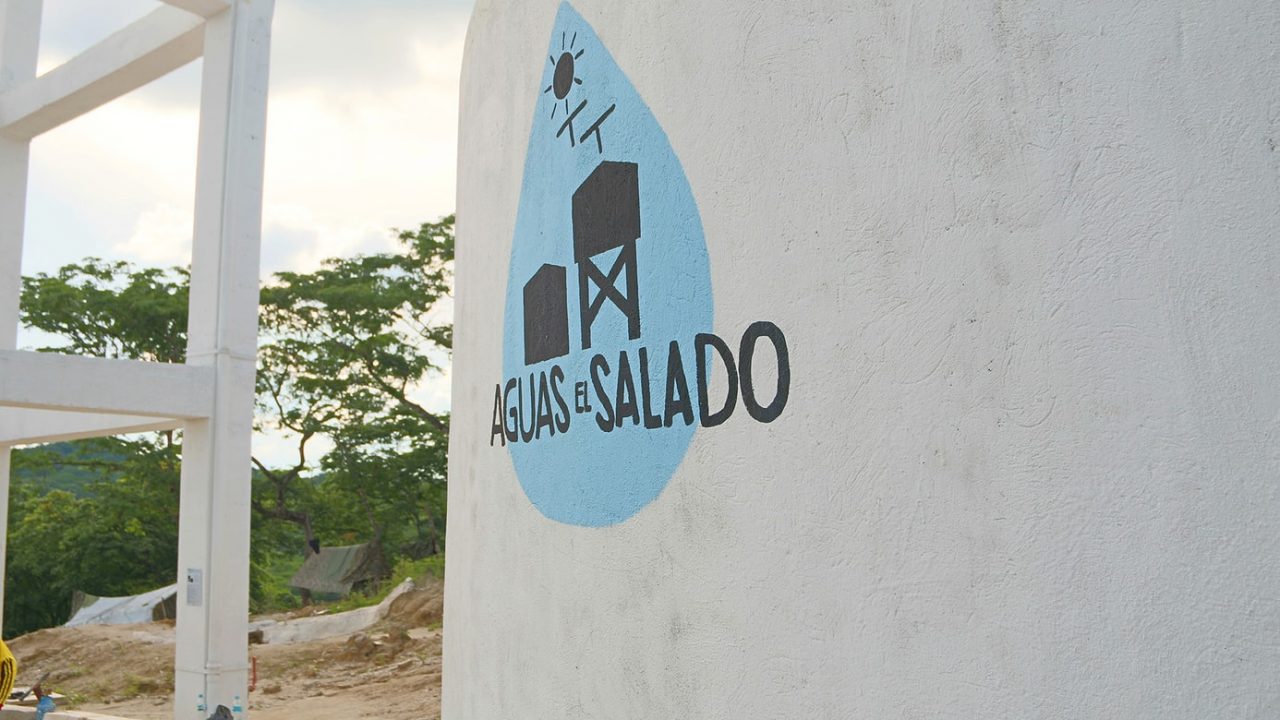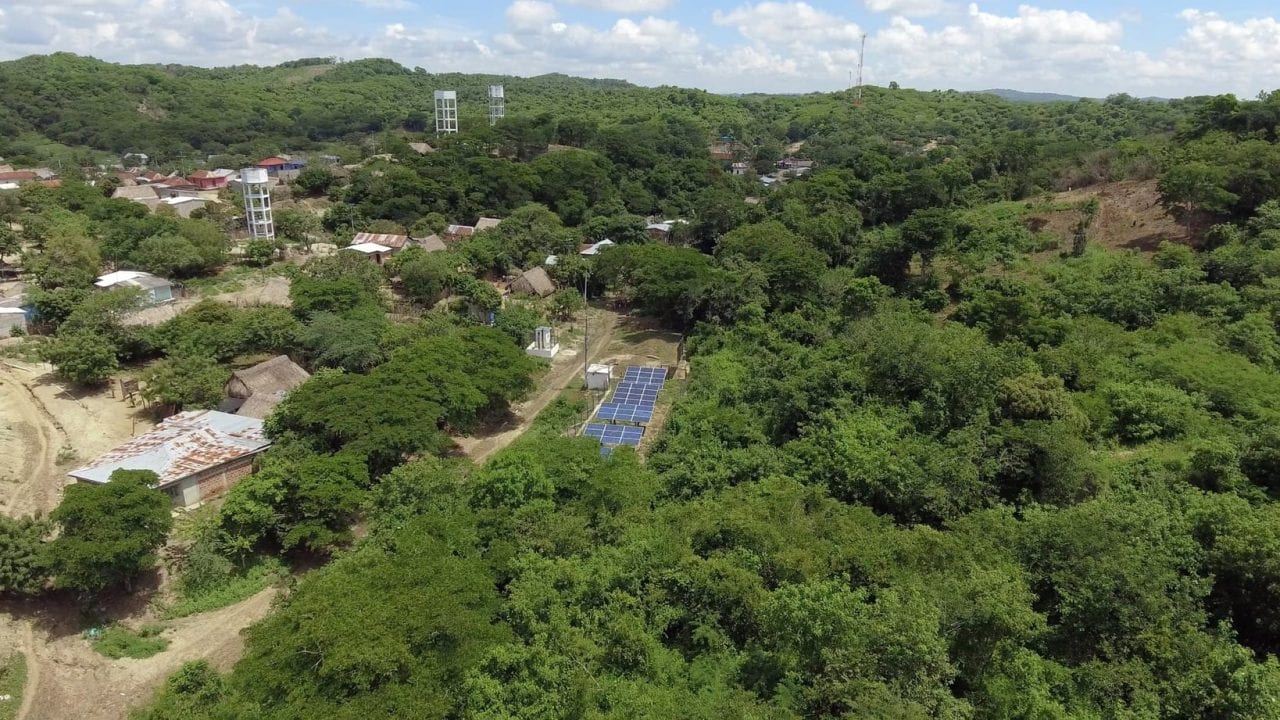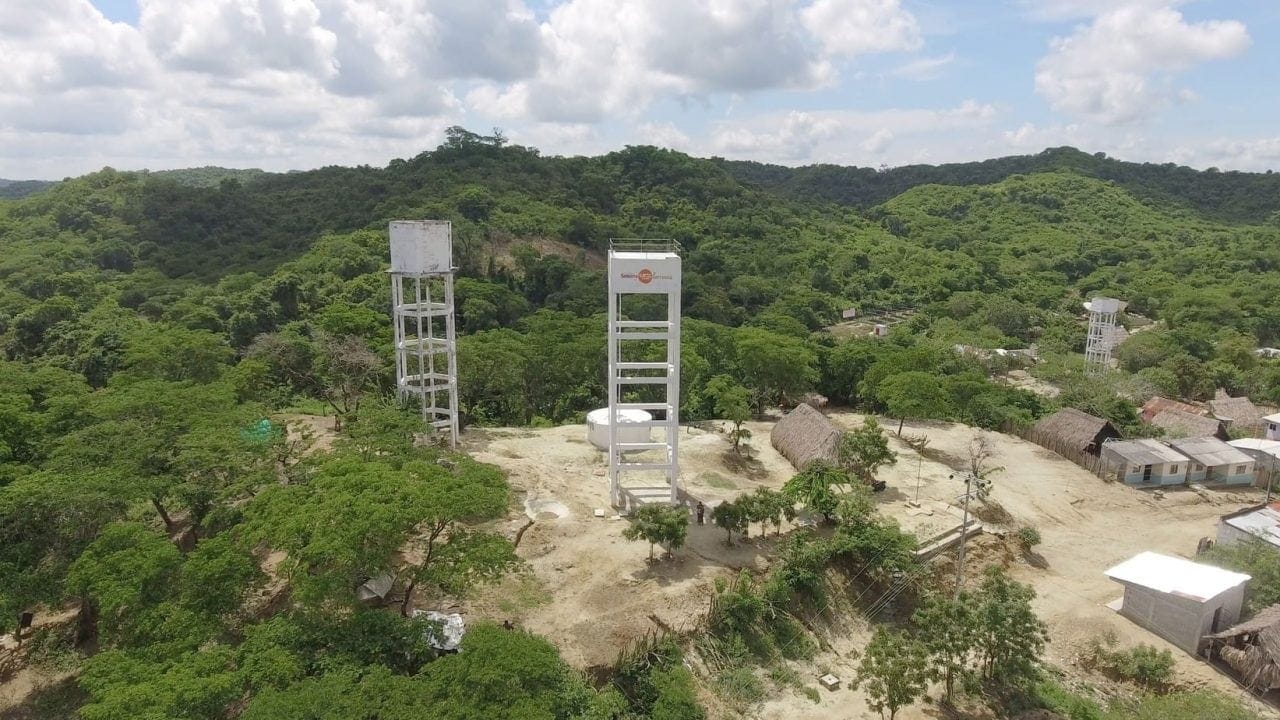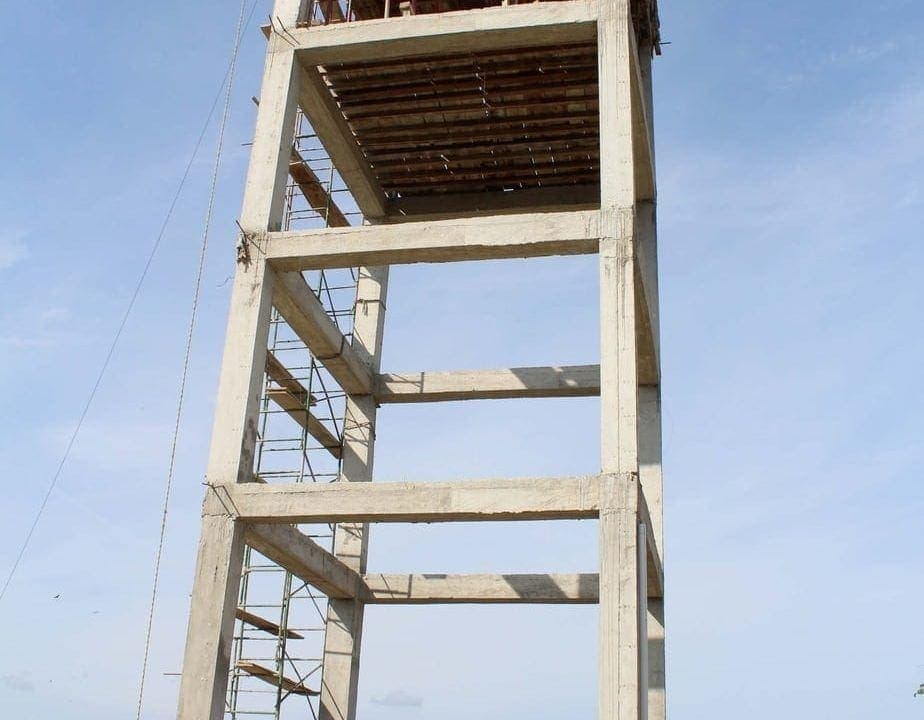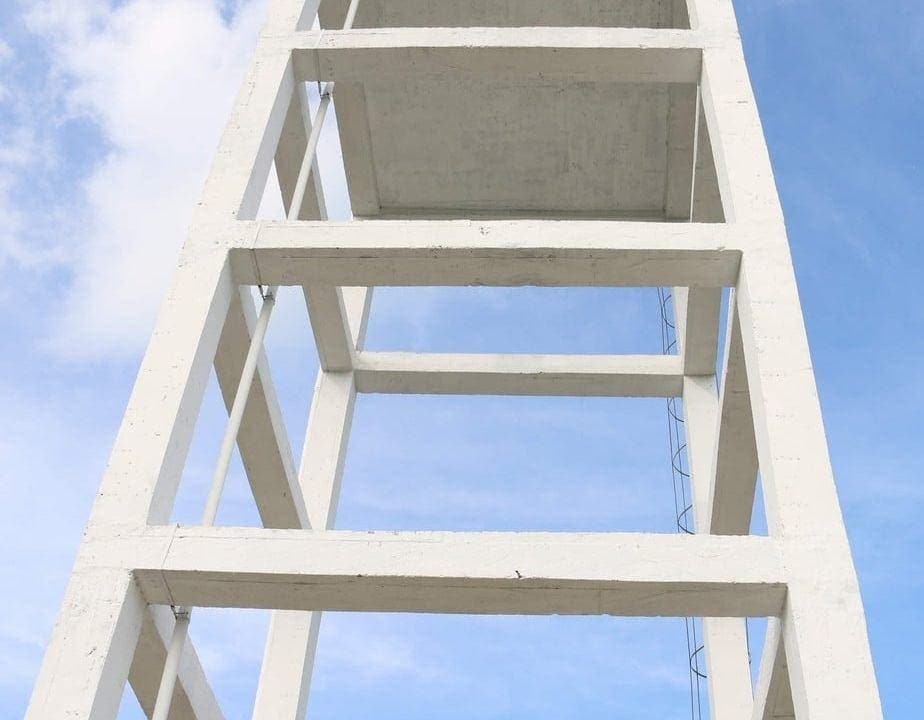Each project and asset is legally independent and has its own managers.
Drinking Water for a Decent Life in El Salado, Bolívar
Improved availability and access to safe drinking water to contribute to a better quality of life for the residents of El Salado in Colombia.
Background
The corregimiento (subdivision of a municipality which includes a population center) of El Salado is located 100km to the south east of the city of Cartagena, in the department of Bolivar in Colombia. It belongs to the El Carmen de Bolívar municipality, which is 19 km away. Although historically it was recognized as one of the better and more prosperous corregimientos in terms of quality of life in the region –due mainly to high income from the growing of tobacco and other agricultural produce–, armed conflict triggered large-scale disintegration of the social and economic fabric of the area from the mid nineties. Violence forced the residents of El Salado and neighboring areas to flee, leaving the area empty.
In the year 2001, some 200 families decided to recover the area and return to the village, and numbers have been increasing since then. However, all productive, commercial and financial networks had broken down, public service infrastructures (electricity and water systems) were not functioning or absent, there was no support from social protection systems, and no proper education or health services and infrastructures were available.
As for water, the old water supply system was recovered, and there is a distribution network connecting houses to two elevated tanks, which are filled from underground sources (deep wells) by an electric pump. However, the system does not supply water continuously and the water that is supplied is not of adequate quality. This affects the living conditions of the population, particularly in regard to their health, and makes it difficult for people to reach their full productive potential. This in turn entrenches poverty.
Currently, the Multidimensional Poverty Index (MPI) in the corregimiento is 42% (figures from 2012), meaning that residents are 6.3 percentage points worse off than those living in other rural areas of the country when measured by the same aggregate index. The limited income generated by the community makes it difficult to pay for public services, food, and access to education.
Ayuda en Acción
Within the framework of a process which aims to financially recover and rebuild the corregimiento of El Salado, Ayuda en Acción and its partner, Fundación Semana, have been working in the area through a cross-cutting approach. Thus, this water project carried out jointly with Ferrovial falls within the long-term integrated development programme being implemented in the region.
The Project
The aim of the project is to provide a continuous supply of quality drinking water to the residents of El Salado.
A solar pump system will be installed to reduce overhead costs. The pump system will function during the day, so that no battery will be required. This technology means that there is no need for mains grid connection, and this will reduce operating costs, an issue which is particularly relevant in El Salado, since one of the reasons for the current system not working continuously is the high cost of electricity required for pumping.
Water will be stored in a new tank, since the existing ones are in a bad state of disrepair. The water pipelines will be repaired where necessary, and protected where there is a risk of damage through exposure.
The social element of the project aims to mobilise the community to oversee and maintain their water resources. For this purpose, decision making spaces such as the Infrastructure Board, the Oversight Committee and the Administrative Board of the Water and Sewage Systems of the El Salado corregimiento will be strengthened. This process aims to ensure the proper functioning and sustainability of the water supply system in the long run, thus contributing to an improvement in the health of the population and the general wellbeing of children and their families.

